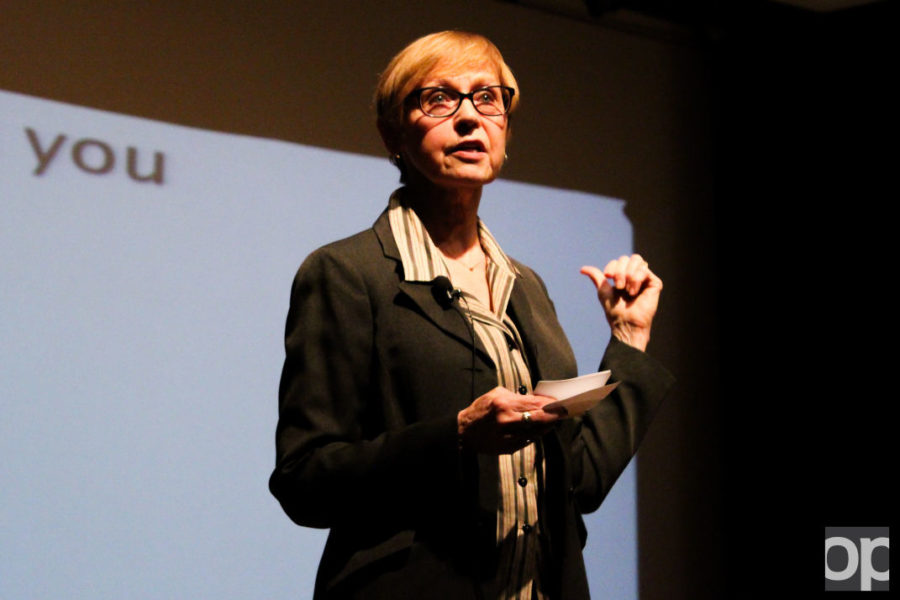Jacquelyn White presents on sexual assault
Oakland welcomed Dr. Jacquelyn White, a renowned psychologist who specializes in sexual assault research at the University of North Carolina at Greensboro.
In a survey conducted by the Association of American Universities (AAU), one in four women reported experiencing sexual assault on their college campus.
On April 4, the Violence and Abuse Resource Consortium (VARC), Center for Student Activities and Leadership Development and Oakland University Student Congress welcomed Dr. Jacquelyn White to give a presentation regarding sexual assault.
As a doctor of psychology at the University of North Carolina at Greensboro, White works as a renowned expert in her field conducting research on the topic of sexual assault.
White’s presentation began OU’s week of Sexual Assault Awareness Month events. Her talk was focused on the three questions of what we know, how we know it and what to do about it as part of the VARC Excellence in Research Lecture Series.
She opened her talk with information regarding the increased attention focused on sexual assault in recent years, and mentioned the White House Task Force relating to the Not Alone Report and Toolkit initiatives.
She also addressed the moves being made toward federal legislations and mandates for on-campus climate surveys, which allow individuals in university communities to gain a better understanding of student perspectives of sexual assault on campus.
White addressed the topic of goals that have been put in place as a way to reduce the traumatic consequences experienced by survivors through various health services and policies. These programs are designed to address the treatment of and treatment for sexual assault survivors and perpetrators alike in relation to legal and procedural mandates.
“Sexual assault is a huge issue on college campuses, especially today,” White said. “These incidents may range anywhere from unwanted touching to intercourse, and are defined as any form of sexual contact with a person when he or she has not consented, or does not want the contact. This can also be identified through methods of verbal manipulation and the threat or use of force.”
White shared staggering statistics and results hailing from surveys conducted among adolescents on the topic of sexual assault.
White cited data from a popular study in the 1980s that indicated that women in their first year of college would categorize their sexual encounters as 69 percent consensual, 21 percent involving coercive acts and 10 percent that would fall under the definition of rape or attempted rape.
The same women reported 26 percent consensual, 44 percent involving coercive and 30 percent rape or attempted rape when asked the same questions in their last year of college.
“Although these numbers were reported nearly 30 years ago, they still carry a substantial amount of weight as they have not changed in that time,” White said. “This is staggering evidence, especially for someone in my field-we want to think things are changing as education increases, yet there have not been any notable changes.”
When this survey was run for men and the questions were rephrased from “have you experienced” to “have you participated in,” the results were similarly stunning.
Men in their first year of college reported their sexual encounters as 86 percent consensual, 9 percent classified as rape or attempted rape and 5 percent with coercive acts.
From here, White touched on the role of alcohol, peer norms and memberships in sports teams and fraternities in relation to sexual assault cases. She reported that these elements, specifically alcohol, are related to sexual assault situations yet should not be used as a reason to blame sexual assault victims or perpetrators.
For those looking to attend other events related to sexual assault awareness month and this week’s events, check out the VARC Presentation and Discussion sponsored by the VARC and Graham Health Center as well as the CSA Denim Day Pledge and HAVEN Consent Training.






